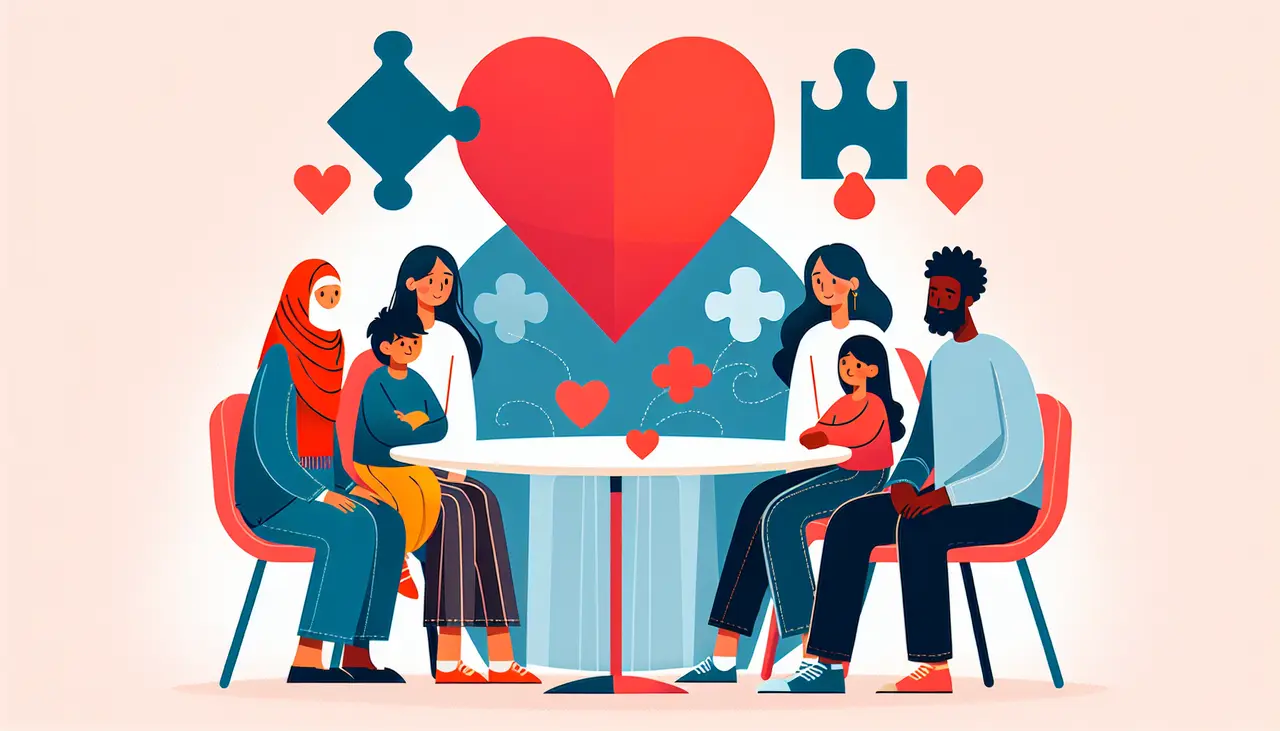From Conflict to Closure: How Family Divorce Counseling Supports Emotional Healing
Navigating the stormy waters of divorce can be one of life's most challenging journeys, particularly when children and intricate family dynamics are involved. Beyond legal battles and logistical arrangements, the emotional well-being of all family members emerges as a paramount concern. This is where family divorce counseling comes into play, offering a beacon of hope and a path toward healing. Dive into an exploration of how this specialized form of therapy can transform conflict into closure, fostering resilience and emotional growth.
Understanding the Emotional Impact of Divorce on Families
Divorce is more than just a legal dissolution of marriage; it's an emotional upheaval that reverberates through the entire family. For children, in particular, the breaking of the family unit can lead to feelings of insecurity, confusion, and loss. Adults, on the other hand, may experience a tumultuous range of emotions from relief to profound grief. Recognizing these impacts is the first step towards healing, highlighting the crucial role family divorce counseling plays in navigating these turbulent times.
The dynamics within a family undergoing divorce can be complex and fraught with conflict. This emotional maelstrom can hinder effective communication, leading to misunderstandings and further estrangement. Family divorce counseling aims to address these issues, promoting an environment where each member's feelings are acknowledged and respected. This foundational understanding sets the stage for effective emotional healing, underscoring the need for specialized support during these times.
The Role of Family Divorce Counseling in Navigating Conflict
Family divorce counseling serves as a crucial intermediary, offering strategies to manage conflict and improve communication. Through facilitated discussions, families learn to express their needs and concerns constructively, fostering a climate of understanding rather than confrontation. This shift in dynamics is key to resolving underlying issues and moving towards mutual respect and cooperation.
Techniques Used in Family Divorce Counseling for Emotional Healing
Counselors employ a variety of techniques tailored to each family's unique situation. From cognitive-behavioral therapy (CBT) designed to alter negative thought patterns to narrative therapy that helps members reframe their stories in a more positive light, these approaches aim to mitigate the emotional distress associated with divorce. Moreover, art and play therapy are often used with children, providing them a non-verbal outlet to express complex emotions.
Another powerful technique is mediation, where the counselor facilitates a neutral ground for dispute resolution. This method is particularly effective in addressing custody arrangements and other contentious issues, ensuring decisions are made in the best interest of the children. By integrating these techniques, family divorce counseling helps mend fractured relationships, laying the foundation for emotional stability and healing.
The Journey from Conflict to Closure: Real-Life Success Stories
Real-life examples underscore the transformative power of family divorce counseling. One success story involves a family that was initially embroiled in bitter disputes over custody and visitation rights. Through counseling, they learned to prioritize their children's well-being, resulting in amicable arrangements that satisfied all parties. Another case highlights a couple who, after initially struggling with communication, rediscovered respect for each other's perspectives, leading to a smoother co-parenting relationship.
How to Choose the Right Family Divorce Counselor
Selecting the right counselor is a pivotal decision that can significantly influence the healing process. It is essential to seek a professional specialized in family dynamics and divorce issues, with a strong track record of helping families navigate this difficult transition. Moreover, ensuring the counselor is a good fit for all family members, particularly children, is vital. This alignment of expertise and personal rapport sets the stage for a more effective counseling experience, fostering a path towards emotional healing and closure.
Embracing New Beginnings
As families navigate the aftermath of a divorce, the transformation from a unity to separate entities is both challenging and profound. Family divorce counseling emerges not just as a guiding light, but as a vital tool for emotional healing and conflict resolution. It underscores the reality that even in separation, there can be a harmonious way forward, where understanding and mutual respect pave the way for closure. Embracing this therapeutic journey allows individuals and families to turn a page, fostering a future where emotional well-being and personal growth take precedence.


